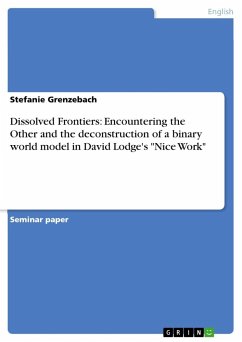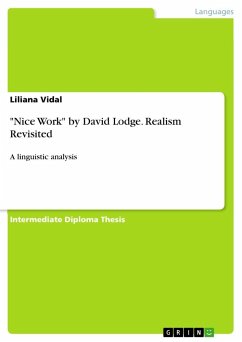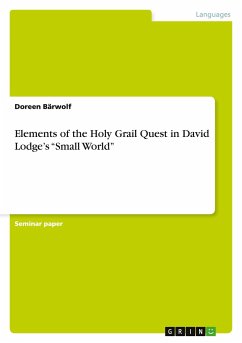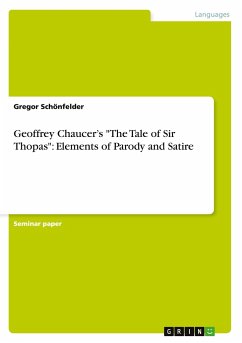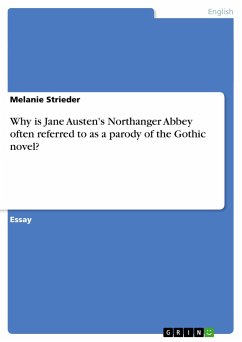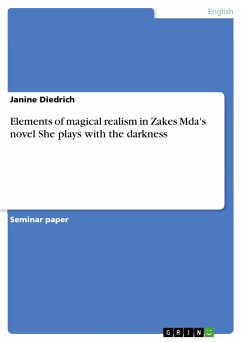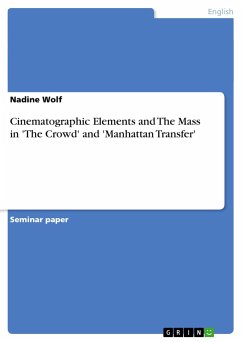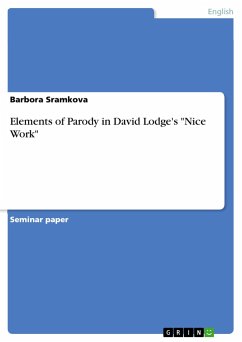
Elements of Parody in David Lodge's "Nice Work"

PAYBACK Punkte
0 °P sammeln!
Seminar paper from the year 1995 in the subject English Language and Literature Studies - Literature, grade: 1,0, Technical University of Berlin, course: PS David Lodge, language: English, abstract: When thinking about David Lodge and parody, Nice Work might not be the first novel that springs to mind. This is because the generally accepted conception of parody is that of an imitation of a model text, be it a particular piece of writing, the style of an author or the literary modes of a particular period, with the underlying intention of mocking and ironizing the target text. According to this...
Seminar paper from the year 1995 in the subject English Language and Literature Studies - Literature, grade: 1,0, Technical University of Berlin, course: PS David Lodge, language: English, abstract: When thinking about David Lodge and parody, Nice Work might not be the first novel that springs to mind. This is because the generally accepted conception of parody is that of an imitation of a model text, be it a particular piece of writing, the style of an author or the literary modes of a particular period, with the underlying intention of mocking and ironizing the target text. According to this, the natural association would be Lodge's The British Museum is Falling Down, with a slight deviation as far as the author's intentions are concerned. The concept of ridicule, which can be traced in most of the parodies in the history of this genre since Aristophanes, is not an inherent feature of parody. The mockery does not always go at the expense of the text parodied, as we can see in the case of The British Museum is Falling Down, which is rather a homage to the background texts. It is the issue of the "ethos of parody", which can be ironic, ridiculing, didactic or reverential. This wide "pragmatic range of parody" results from the ambivalent meaning of the Greek word 'para', which means both 'opposite' and 'beside'. Linda Hutcheon suggests that "it is this second, neglected meaning of the prefix that broadens the pragmatic scope of parody in a way most helpful to discussions of modern art forms (...). With this in mind, I shall approach Nice Work along the lines of Daniel Ammann's definition of parody as an "activation or flirtation with an intertext (...) sustained over longer stretches(...)" as well as of Linda Hutcheon's statement that "parody(...) is a repetition with difference." Defined thus broadly, it meets my conception of Nice Work as a non-standard parody. By this I mean that it is not a homogeneous rewriting of an original (with a "difference" , ofcourse), as Jane Austen's Northanger Abbey is a parody of the Gothic novel, neither is it a consistent mosaic of parodies mimicking the originals according to one principle as The British Museum is Falling Down does, and on that account it becomes a parody homogeneous on a higher level.



